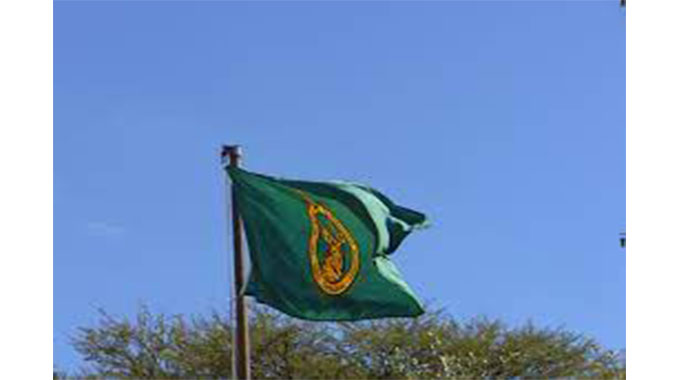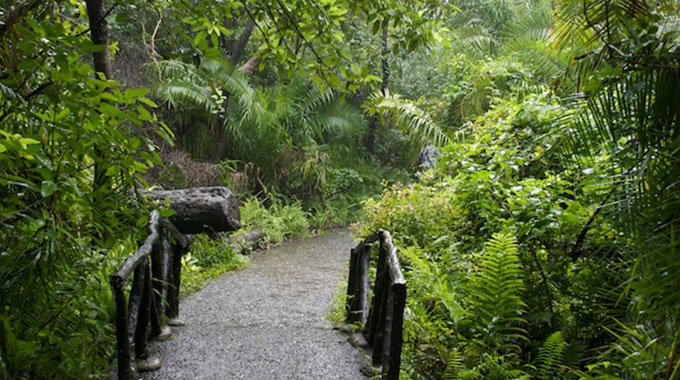Second Republic rolls out empowerment projects for San community

Nqobile Tshili, Chronicle Reporter
THE Second Republic is rolling out empowerment projects for the San community as it moves to ensure noone and no place is left behind when it comes to development.
The San live in the borderline areas of Tsholotsho in Matabeleland North and Bulilima in Matabeleland South in a relatively closed society that over the years made it increasingly difficult for outsiders to interact with them.
They lived in abject poverty and did not want to associate with strangers, largely owing to different socialisation systems as they were mainly hunter-gatherers who moved from place to place.
Changes that came with civilisation forced them to adopt new lifestyles and abandon hunting which was their mainstay.
This left the community disadvantaged as they did not have livestock like other rural communities in Zimbabwe.
The San language is also slowly dying due to their integration into IsiNdebele and TjiKalanga-speaking communities.
It is against this background that Government came up with special empowerment programmes targeting the San Community as it moves to ensure noone and no place is left behind when it comes to development.
Tsoro-o-tso San Development Trust director and founder Mr Davy Ndlovu, who has been advocating for the rights of the San for years, said so much is changing since President Mnangagwa came to power.
“We started this project long back lobbying Government to assist us and we are happy that many projects are being implemented to improve our livelihoods. The community had lost hope in my project but since the coming in of the Second Republic, things have dramatically changed for the better,” said Mr Ndlovu.

Zimbabwe Parks and Wildlife Management Authority
He said many organisations had in the past visited the community promising to fund development projects but nothing materialised.
Mr Ndlovu said what was encouraging was that the Government instead of giving handouts as was the case in the past, was empowering communities.
“Some of our children after undergoing training are now working for the Zimbabwe Parks and Wildlife Management, Zimbabwe Prisons and Correctional Services while others are enrolled at universities which was not the case before,” said Mr Ndlovu.
He said recently Environment, Tourism and Hospitality Industry Deputy Minister Barbara Rwodzi visited the community and informed them that Government had accepted their request to be allowed to hunt.

Environment, Tourism and Hospitality Industry Deputy Minister Barbara Rwodzi
Meanwhile, Government is finalising hunting permits for the San community as part of the broad-based strategies to empower them.
In an interview, Environment, Tourism and Hospitality Industry Minister Nqobizitha Ndlovu said the San will soon be allowed to hunt.
“We met them in July and we agreed that hunting is part of their culture and tradition. Zimparks will therefore come up with a hunting quota which is sustainable,” said Minister Ndlovu.

Environment, Tourism and Hospitality Industry Minister Nqobizitha Ndlovu
He said Government does not want the hunting to be conducted haphazardly as poachers might abuse it.
Minister Ndlovu said the ministry also resolved that the community will be given the meat from Trophy hunts.
To come up with long-lasting solutions to challenges facing the San community, Government went on the ground hence ministers last year held several meetings with the community and its leadership.
The ministers’ findings were presented to Cabinet which then directed relevant ministeries to implement development projects targeting the San community.

Zimbabwe Prisons and Correctional Services (ZPCS)
The defence and security sector was directed to set aside a quota for the San community when recruiting.
After this directive, 20 San youths comprising 11 males and nine females wrote their own piece of history last June when they became the first group to graduate as Zimbabwe Prisons and Correctional Services (ZPCS) officers at Ntabazinduna Prison Training School.
In a bid to ensure the San enjoy full citizens’ rights, the Civil Registry Department has since September last year been issuing national documents to the community.
Last month, President Mnangagwa appointed Mr Christopher Dube, Chief Goledema, making him the first officially recognised Chief of the San. — @nqotshili











Comments